Our favourite games of 2025 so far!
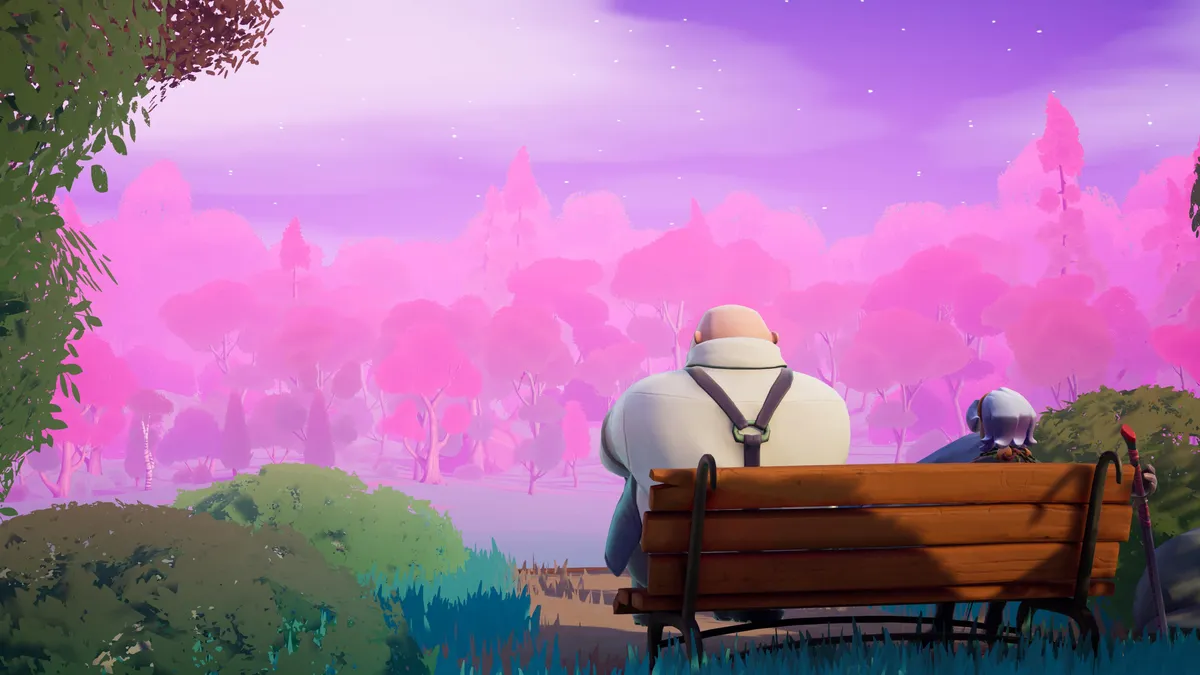
Hey there lovelies, and welcome to the end of June! Can you believe six months have come and gone already? Yuck! On the bright side, there have been an awful lot of great games that have been released so far in 2025, so we figured it would be useful to give those who feel like they've fallen behind on their FOMO homework a little list of the best this year has had to offer so far. We hope you enjoy and find something new to play xx - RW
A sidenote from me also: our game taste is subjectively excellent, but moreover our descriptions of games are objectively fabulous. I take no responsibility for adding more to any wishlists. May your games be completed and your backlog ever-shortening! - JG
Avowed
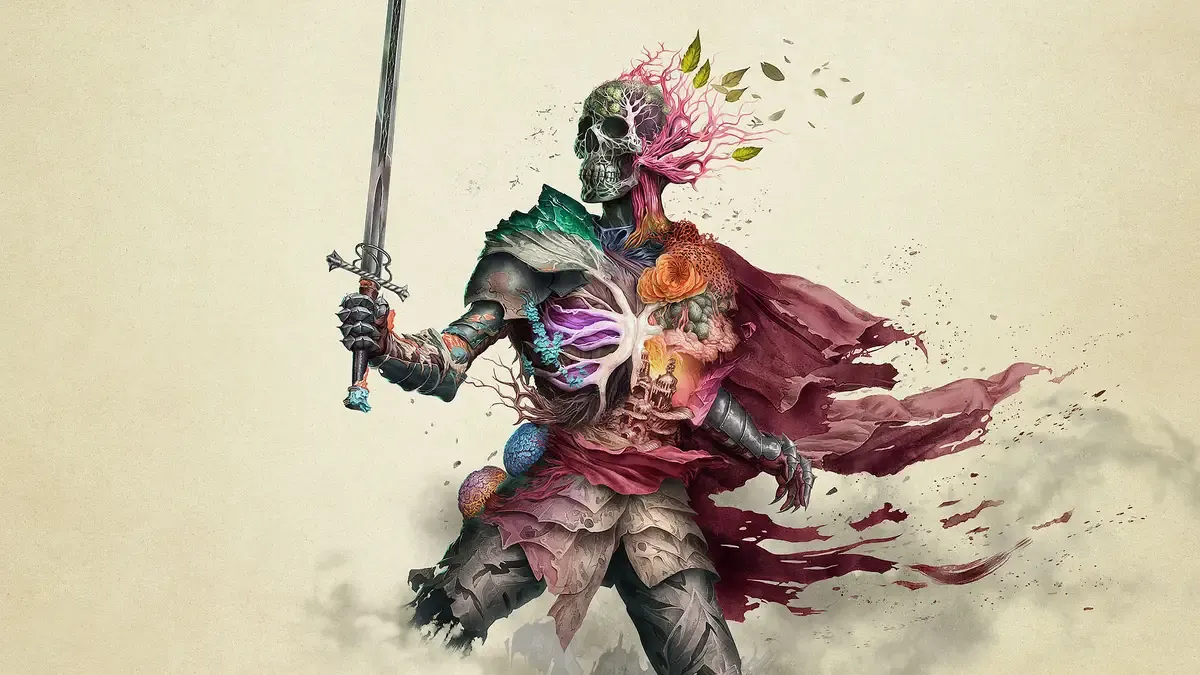
The Pillars universe is a strange one amongst the greats of CRPGs, more adjacent to the early industrial age than typical sword and board fantasy of Baldur's Gate or Dragon Age, yet still maintaining that fantastical feeling compared to the likes of Shadowrun or Fallout.
This makes Avowed, its successor, a uniquely placed first-person action RPG. As an envoy of the Aedyran Empire and a member of the Godlikes, a subset of Pillars-species that are considered to have divine influence in their life and birth, you find yourself in the Living Lands, a place where the interests of multiple factions from multiple homelands and backgrounds are colliding and reaching a boiling point. This is similar to the starting premise of both prior games, but here, you are not so central as the Watcher nor is your background so definable; here, you are seen as the envoy of a kingdom many people hate, and as a member of a species many do not understand, including yourself, for no god has claimed you.
It is a unique and very fun to explore position in this kind of game, where political drama and tension between gods is backdrop to you gradually becoming a genuine hero with great magical powers, excellent swordplay, or just some really great guns. The gameplay is fun and often extremely tough in typical Obsidian style, expecting you to play cleverly and tactically against large groups of enemies, managing your strongest attacks and abilities well to weave a path of destruction through the Living Lands while you unravel the mystery of who you are, what you were born for, and what your role will be to the people that live here, and to those that come from your homeland and put great expectations on you.
It is a funny, very deep and very involved romp through an intricately-crafted universe, with a reactive story and many interesting surprises along with a lot of loot and enemies to find, and if you enjoyed Pillars or any RPG where you wanted to feel involved and invested in the lore and world, you'll feel very at home in Avowed.
Citizen Sleeper 2: Starward Vector
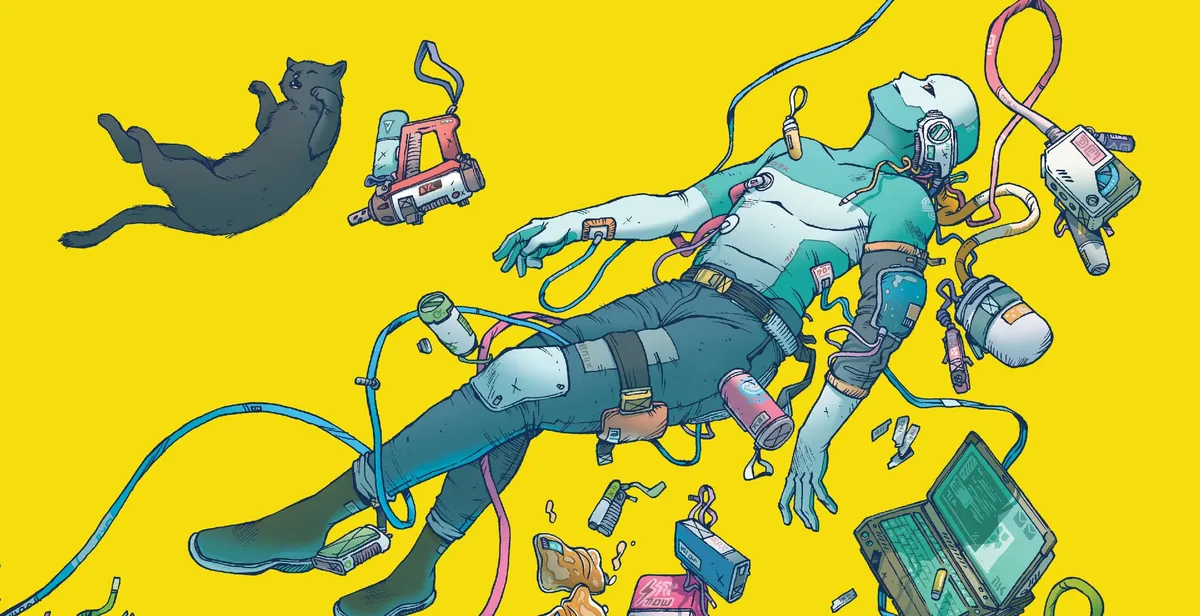
Citizen Sleeper 2 is a game about running out of time. From the start, you are constantly escaping from your captor in the opening sequence. After that, you are running from everything: burnout, supply shortages, debt, and so on. The contracts you take to make some extra cash are similarly set to strict timers, and failing to complete your work within that time can have catastrophic results. You never really get to relax in the universe of Citizen Sleeper, and it can be exhausting.
But then, nestled in between anxieties lies moments of genuine beauty. It’s a very introspective game with lots of interesting sci-fi concepts that are handled with total sincerity. Developer Jump Over The Age wants you to engage these ideas and characters with introspective curiosity. There’s a lot to love about them, and despite how otherworldly these situations can get, they are human dilemmas nonetheless. It often reads like a compelling novel at times, with occasional opportunities for player input as well. The true strength of Citizen Sleeper 2, for me, lies in these moments. I couldn’t help but embrace these little pontifications on identity, free will, individuality, sacrifice, ambition, siblinghood, forgiveness, and so much more by relating them to my own experiences. These moments are just so believable – so rich with history and meaning – that it is impossible not to bring a little bit of myself to them, and learn a little more about myself on the way out. That’s the sign of good writing, I think!
You don’t need to have played the first Citizen Sleeper to play this one, but I do strongly recommend it. CS2 feels like a beautifully considered extension of the ideas and vibes present in that original game. That approach brings with it a significantly increased scope, spanning multiple space stations rather than just one, so the resulting experience is noticeably messier and less polished than its predecessor. However, that willingness to embrace a more ambitious project, knowing it might not entirely work out, for the chance to explore something entirely new, feels very in-keeping with the spirit of Citizen Sleeper 2.
Ultimately, life is hard and stressful and it sort of feels like the world is getting worse all the time right now, but we struggle through it because of all the beauty that remains. A stray cat finding its way into your life that becomes a friend; somehow figuring out how to grow mushrooms in your little spaceship; sharing a meal with a years-long friend who commits himself to your journey no matter what. Sometimes, you play a little game about robots in space that becomes one of your favourites in years. Give it a shot for yourself!
Elden Ring: Nightreign
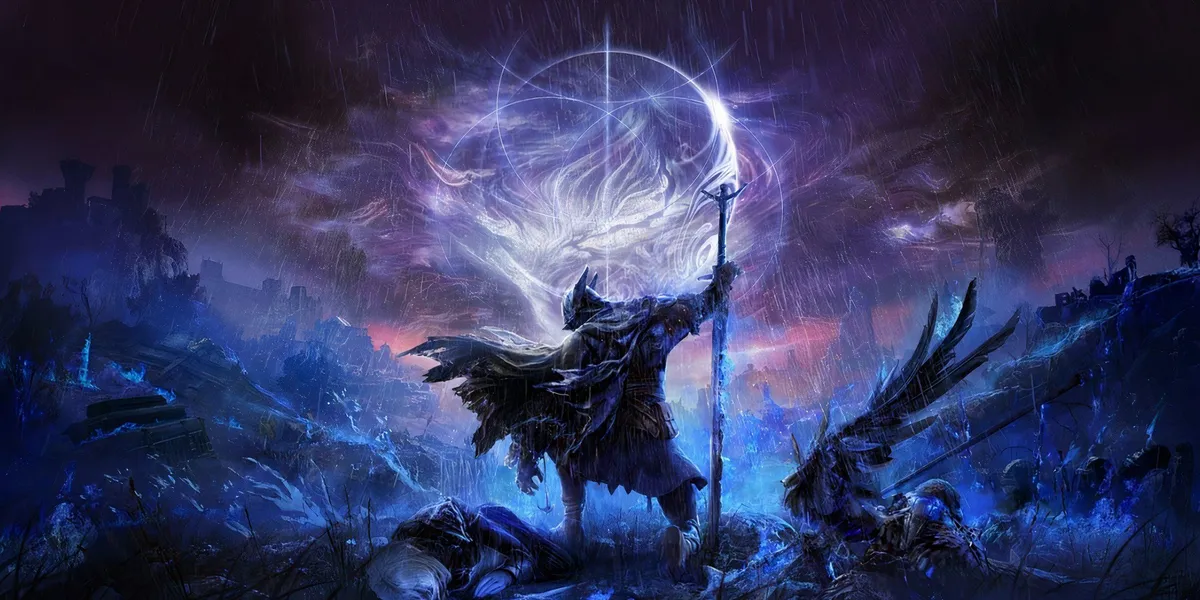
Shocking news, everyone: the latest FromSoft release is good! Okay, sarcasm aside, I genuinely wasn't sure what to expect from Nightreign; as Elden Ring's biggest fanboy, my initial thoughts on its reveal were that it would probably be good. Just good. Co-op Elden Ring? I mean it's always fun, but it'll only be so good.
I was so wrong. Deviating from their typical Souls formula, Nightreign is focused and balanced around 3-players and speed, relying on a storm of fire and the need to endlessly gather better equipment and runes to keep you on your toes: and it's excellent. The breakneck pace of the game makes every fight, location and loss of health a balancing act: can you afford to fight this boss with the storm closing in? Should we grab more runes or more flasks? Can we go after the map's unique reward in time, or will the storm catch us first? It's a new and engrossing layer of challenge on an already refined experience, best played with friends who are just as inclined to panic as you are when everything goes wrong, which only adds to that unique Souls comedy of getting wrecked by “easy” bosses.
Its inclusion of esoteric lore, playable characters and “remembrances” that unlock artifacts and slowly unravel each character's story only add to an already great experience by giving it a sense of personal interest and focus to replace Elden Ring's vast open world and Souls-typical storytelling, although much is still open to interpretation and inference. It also has some minor flaws that game never faced: its roguelite aspects are somewhat lacking in permanence between runs, and it shows its formula more than most Souls games in the repetition of certain bosses and patterns in the world; but it remains supported after release, and proves FromSoft haven't lost their experimental nature with game design.
Nightreign is well-worth the journey into the night it demands, and I hope it continues to develop, as it's already a strong candidate for one of the best games of the year. Important note: the music and soundtrack for Nightreign, as with many of the games on this list, is one of the best game soundtracks we've had in years, and for a spinoff game it is all the more impressive.
Clair Obscur: Expedition 33
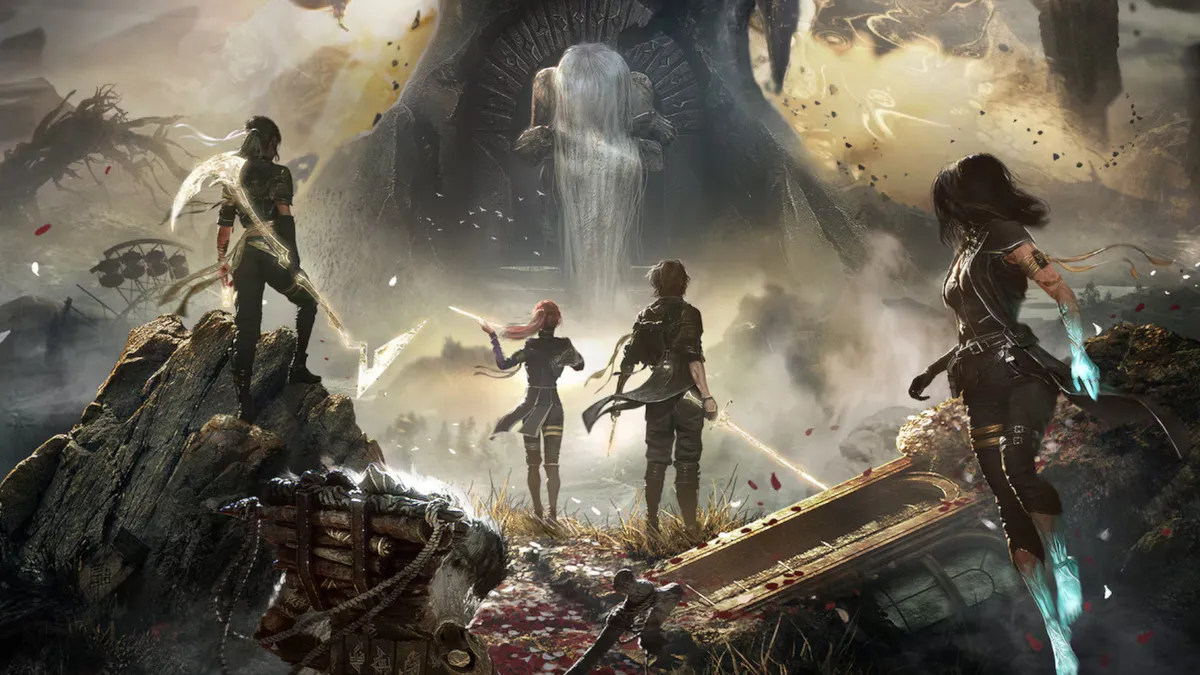
There’s an optional boss in Expedition 33 named Grosse Tete. It’s a big head – hence the name – and in order to beat it, you need to parry every attack it delivers. Miss one, and you die instantly. Parrying is the bread and butter of this game, but normally an attack volley will max out at around five or maybe six in a row. To defeat Grosse Tete, you need to parry each of its concurrent attacks 24 times. Do that, and it explodes. Unfair? Probably. Hilarious? Absolutely.
Moments like this are what set Expedition 33 apart from its contemporaries, I think. It is deeply indulgent, wearing its influences on its sleeve with pride whilst delivering an experience altogether its own. It is also, as a result, unmistakably made by human beings. Somebody was probably sitting in a room and had to pitch the idea of an enemy that chains 24 attacks and expects the player to parry every single one. The team probably laughed about it, and then they made the damn thing! I imagine this kind of approach is what has ultimately helped Expedition 33 stand out. It’s a smash hit, beloved by millions at this point, and for good reason! Its combat is given new life by a thrilling parry/dodge system that marries the satisfying stratagems born from a turn-based system with the visceral pleasure of avoiding every hit by timing your inputs just right. Pair that with some stunning art direction and fluid UI design, and you’ve got something of a winner. However, what defines the Expedition 33 experience, I think, is the storytelling. From the opening sequence, it’s easy to tell that this game is brimming with confidence. The narrative goes to seemingly impossible places, with enough head-spinning twists and turns that it can be difficult to keep up. Ultimately, though, I appreciate that the game isn’t afraid to embrace moral ambiguity. I think this ending will be talked about for a long time, not least because it presents a moral conundrum with no real right answers, and more importantly, no way to game yourself into a happy ending. It indulges in a level of abject tragedy that I haven’t felt in ages, and I’ve got to appreciate it for that.
Expedition 33 is by no means a perfect game. Certain elements like the relationship system feel a little undercooked and it relies more heavily on its core gameplay for every quest than I would like, but at the end of the day, these negatives pale in comparison to the level of achievement on display here. Removed from everything, it is good that a game like Expedition 33 can succeed and thrive in this current gaming climate. Here’s to, hopefully, many more like it.
Monster Hunter Wilds
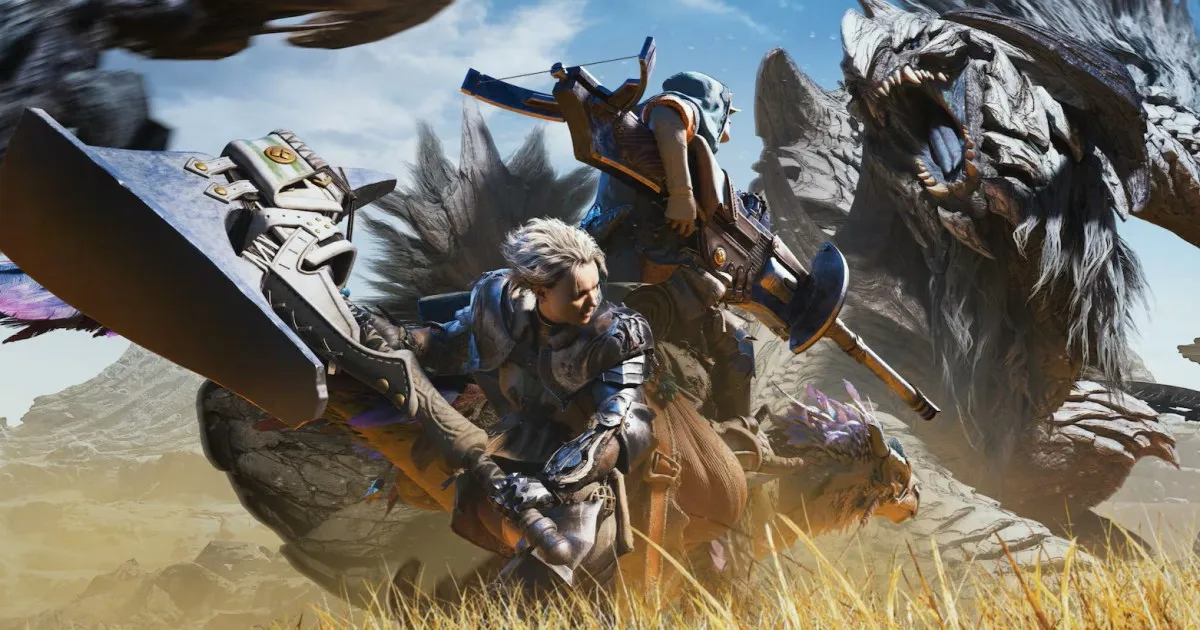
There's so much I could say about Monster Hunter as a franchise and a formula for game design as well as its impact on so many games, but there's a reason it remains dominant in its genre: it is so fun to play. Monster Hunter Wilds combines the speed and movement options introduced in Rise (minus my beautiful silkbugs) with the environmental design and attention to detail of World, and it is such a beautiful culmination of the series thus far. I liked its story well enough, and it is better than the usual MH fare, focusing on a strong core cast and making the player feel involved as a member of this team and guardian of a child trying to find his home in a strange land; but its gameplay is where this game shines.
Wilds expands the movesets of its 14 weapons with Focus mode and wound strikes, allowing us to aim our strikes more effectively and get off devastating blows and counters in combat. It is more focused on creating a rhythm in combat between you and the monster attacking and dodging than prior games, and it makes every fight feel so much more cinematic. Even the mid fight chases feel more tense and involved than prior games, as you chase these deadly creatures down across huge maps through crystal caves, ancient ruins and storm-covered deserts to nests that reflect the monster and even give it extra effects to attacks or environmental hazards to use against it.
Credit is due to Capcom's environmental designers: every map is gorgeous, and more than any prior game you feel the wonder of a unique living world and ecology you actively participate in and often fight against. It's an incredible experience, one so worth the time you'll put into learning your movesets and monsters, because nothing matches the experience of a perfect offset attack or wound strike this game creates. I'm excited for all that's still to come for this game, and also please Capcom give us a new weapon type with the inevitable DLC; we don't need it, but this wonderful game deserves to have one.
Despelote
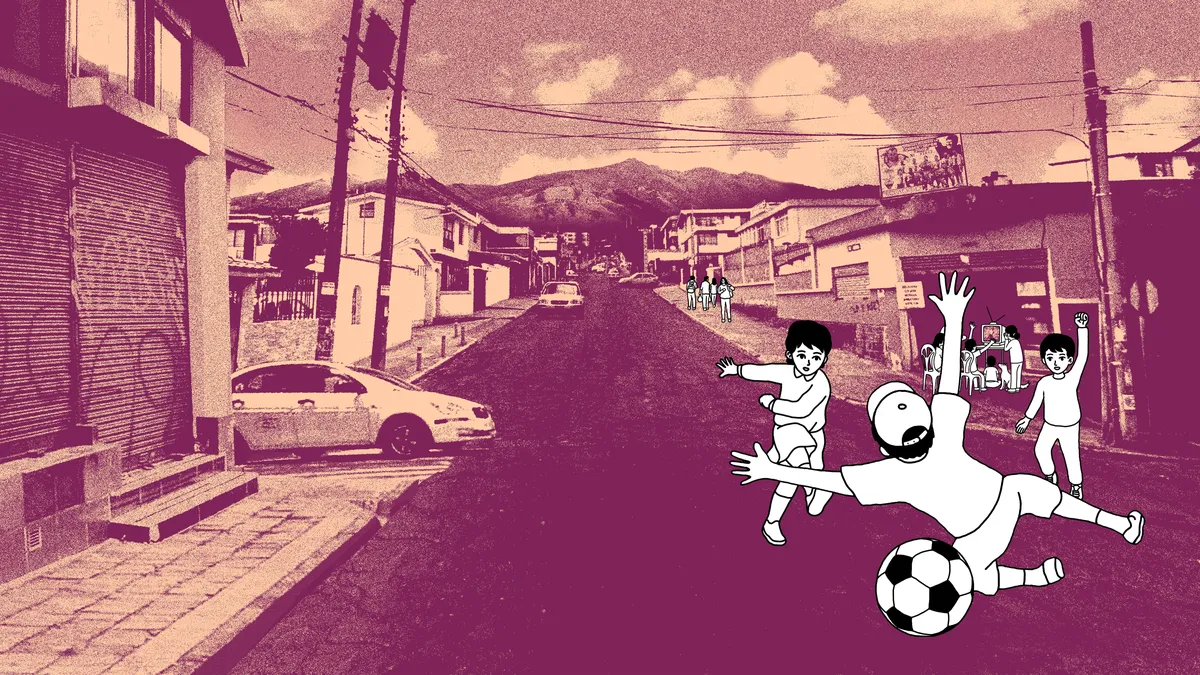
The year is 2001. You are Julián, an eight-year-old boy living in the Ecuadorian capital, Quito. Your national team is soaring in the football world cup qualifiers. A year prior, the nation’s years-long economic crisis is bookended by a failed coup d'état and the introduction of the US dollar as the national currency. What follows is a near-decade of political instability which saw deep-seeded corruption fester and poverty figures skyrocket, not to mention an ever-climbing foreign debt which seemed to go continuously unresolved. But of course, none of that has anything to do with Julián. He just wants to play football with his friends and see his national team make it to the 2002 World Cup.
As such, you’ll spend most of your time kicking a ball around in the streets of Quito, and what streets they are. There’s a focus on immersion in Despelote that is amazing to experience. Voice actors deliver their lines with such authenticity that I struggled to believe they weren’t simply recorded in secret. There’s nothing performative about the people of Quito; they simply exist in all their believable glory. The game has a similar commitment to its sound design, having recorded much of its ambience in the very place the game is set. It’s strange to call Despelote “realistic” given its cartoony, almost childish, visuals, but that feels like the appropriate word for this. It almost feels like a case against hyper-realism, in that Despelote is without question the most engrossed I’ve been in a setting all year, and it does that with paper people.
That being said, Despelote feels very aware of the fact that its version of Quito is editorialised, born not from a picture-perfect recreation of the city, but instead a childhood memory of it. There’s a literal authenticity to it in the sound design and voice acting, true, but more than that, the game feels emotionally true, if that makes sense. It’s a game that is very much about trying to recreate a place faithfully, realising the concessions required to make that work, and accepting that a true, completely honest recreation of a place isn’t really possible. A documentary has to be edited, picking and choosing what material works and what doesn’t. A photograph is often framed with the intention of evoking a feeling or a message, and only so much can be captured within those limits. Not to mention, even when you finish a piece of art and send it out to the world, the intended meaning will inevitably be perverted and misconstrued by an audience bringing their own experiences to the work. That’s not necessarily a bad thing; it’s just human. It’s impossible to recreate life in the literal sense, so the best we can do is be as honest as possible and hope it works out.
Despelote goes to some interesting places to communicate this idea, with some of the most unique presentation I’ve ever experienced in a game, and for that alone, I think it’s worth your time. Please check it out!
Our Adventurer Guild
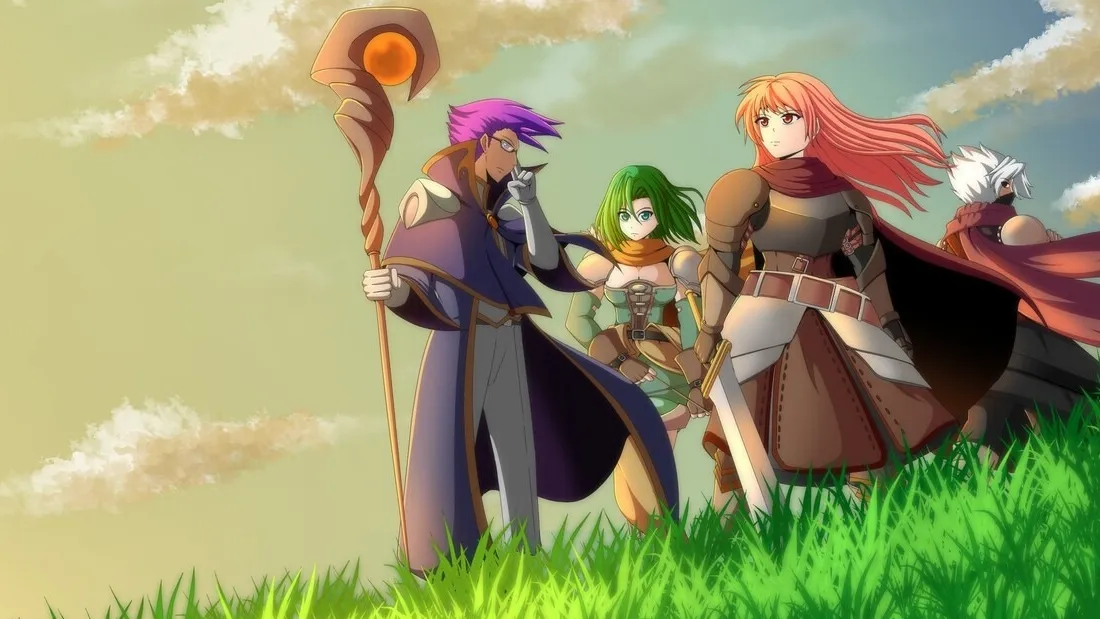
On a first look, you might think this little indie game is a bit odd for this list, but it's actually an excellent management-sim-cross-tactics-rpg that isn't talked about enough.
Its closest analogue in games I've played is Darkest Dungeon: you manage a guild of adventurers in the management sections, building up and upgrading your base with resources earned from your quests and training your people while managing their moods, helping with their relationships and grievances, then go out on quests with your assembled teams of adventurers to gain resources, money, and to progress the story while helping your people.
It's got a fun core loop, a lot of heart and comedy, and plenty of fun quirks to its heroes and gameplay to learn, which comes together to make a surprisingly difficult game with quite the learning curve. I've enjoyed learning its unique systems a lot, and it wears its inspirations on its sleeve, but feels unique for its genre while also providing a fun fantasy of being both the hero and the person that runs support for all the heroes, something that feels like it should've been done before yet surprisingly feels modern and fresh in this take.
Give it a try, it's well worth the time, and feel free to comment when that “easy” squad of earth elementals destroys your highest level hero in a few seconds and the resulting loss leads your guild to being broke. Good luck!
Eternal Strands
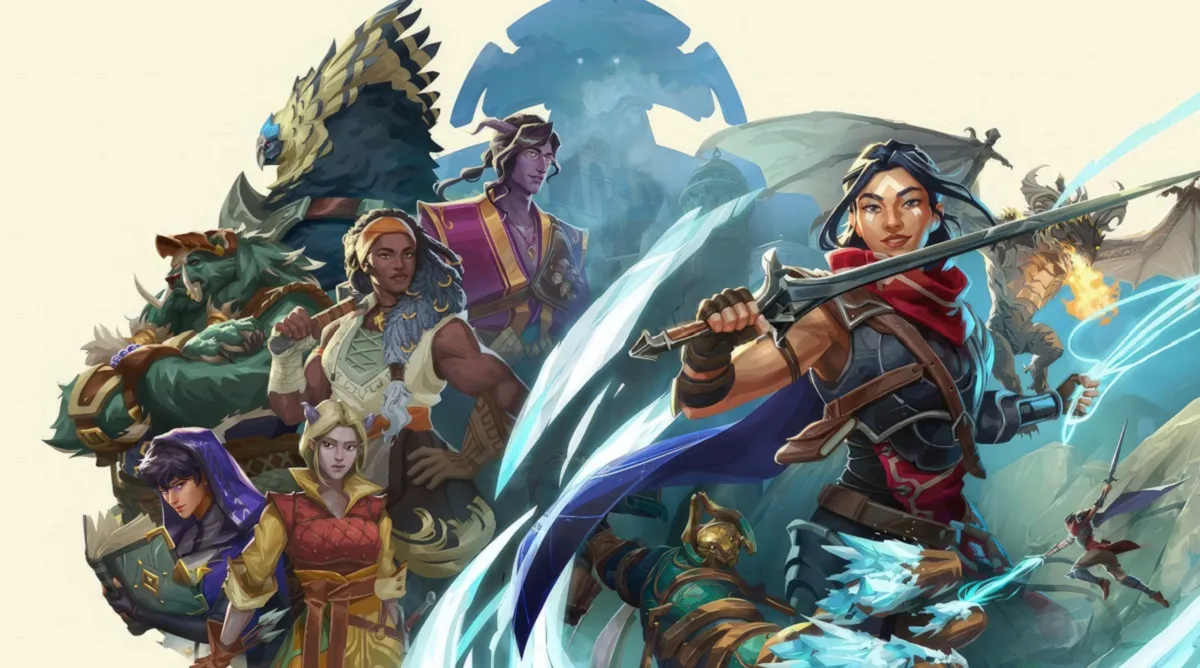
It's always a treat when I go from never having heard of a game to letting it take over my life in the space of a few days, and that's been my Eternal Strands experience in a nutshell, basically. The debut outing for Canadian developer Yellow Brick Games, Eternal Strands is a lot of things. In many ways, it is a mishmash of those things. There's some Dragon Age style worldbuilding in there, a little Hades influence in the social system, a touch of Dragon's Dogma or Monster Hunter in its combat, and a solid chunk of Breath of the Wild in the traversal mechanics. It is, in many ways, a game made up of parts, and through this approach, there's an awful lot it could have gotten wrong. Despite this, Eternal Strands is somehow a triumph, and I adored it.
There's a lot to love here. Taking some of the game's dozen-or-so behemoths is a thrill, due to a focus on systems and reactivity, turning the experience into something approaching an immersive sim, weirdly. Every fight feels fresh and dynamic, always subject to change at a moment’s notice. It helps too that a big part of defeating foes involves scaling them a la Shadow of the Colossus and identifying their weak points through problem solving and experimentation. Somehow, I never got bored of the loop. There's something about being a little guy climbing up a big guy like an ant that appeals to me, I suppose.
Fun combat is all well and good, but what kept me around was undoubtedly the characters. The world of Eternal Strands is so rich with history and detail, and this band of rapscallions – Weavers, if you want the official terminology – is your connection to that world. They're a colourful bunch, and I really enjoyed getting to know them, and working through their troubles. In between threats of cataclysmic proportions, you'll find yourself helping a couple sort out their marital troubles, or support a friend through a quite sobering depiction of OCD and its debilitating impact. Not to mention, some of them are even dateable! What more can you ask for?
All of this is present and accounted for, and yet Eternal Strands never once compromises on its vision or its values. I think that's what I ended up appreciating about it the most. It feels like a game fully divorced from the industry at large. It's a project made with a lot of passion by an incredibly talented team, and there are vanishingly few examples of that in this current games climate. It's well worth a shot.
Rune Factory: Guardians of Azuma
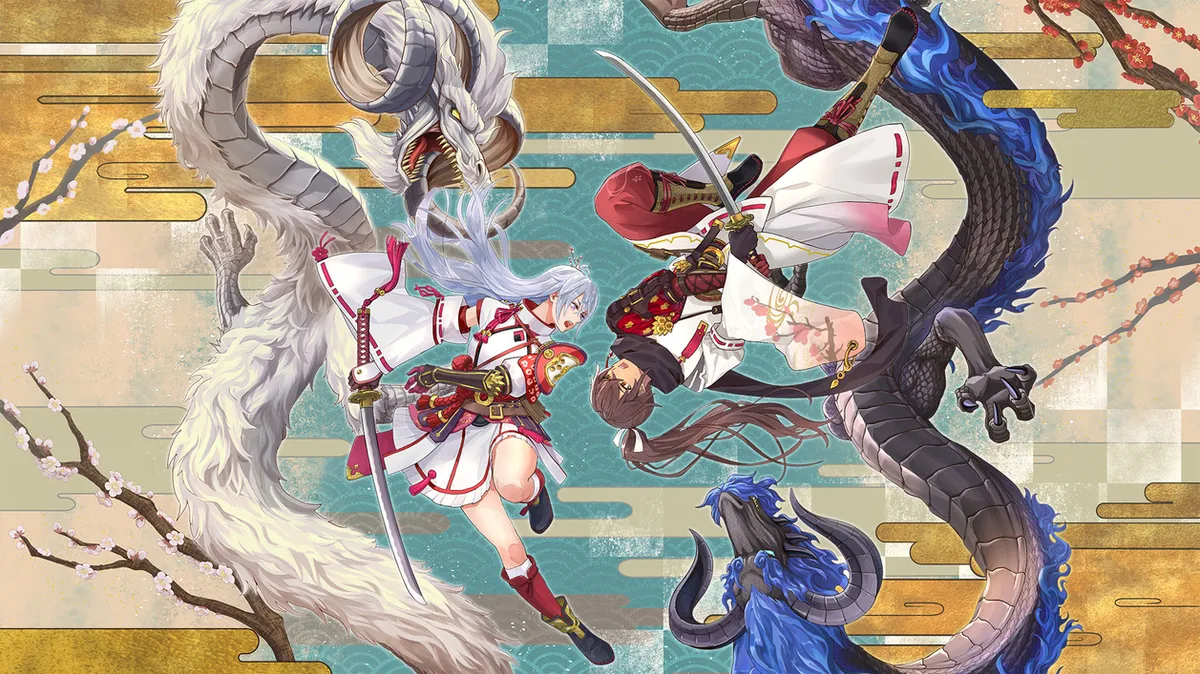
Rune Factory is just a wonderful series. It is so relentlessly positive, never shying away from how people will try to exploit the natural world, but how living in harmony with it is so much more fun and worthwhile.
Guardians of Azuma focuses strongly on this aspect, its core cast consisting of gods who act as spiritual representatives of important elements of human connection to nature, like its Goddess of Spring also being the goddess of Merriment, or its God of Winter representing Water, but also the communal aspects of winter, coming together and caring for each other in harsh times.
It also, of course, has these gods be marriage candidates, beautiful romanceable anime characters, along with a colourful cast of samurai, were-people, Italian-coded explorers and your own reformed enemies. You play as an Earth Dancer, the bridge between the normal villagers you look after and serve and the gods that watch over them, and do the usual: farming, socialising, fighting and taming monsters and making your way through an engaging story about healing a dying land, while you get invested in the people who live there along the way.
It is just a lovely game: its characters are initially tropey, but all are deeply complex people with their own lives and troubles, all of which you get to help with as you very gradually get to know them, and its story is heartwarming and charming, more involved than prior games in the series, but with more fun and involved combat to compensate. Also, I feel I should mention Guardians of Azuma's great respect for its cultural inspirations; clearly inspired as it is by Japan and Shintoism, it focuses its story and gameplay around concepts of culture, community, nature and spirituality with great respect, and its impressive in a game of this scale just how well it involves the player in cultural practices so specific to these places while maintaining its own unique identity, truly making you feel like a person involved in Azuma's recovery.
Play this game to relax and to escape, or just to enjoy the connections this world creates, or to design the prettiest villages and farms you can. Guardians of Azuma has it all.
Lost Records: Bloom & Rage

By this point, we as a society are no strangers to teenagers in a pre-2000s era setting bumming around in Smalltown, Wherever, where supernatural shenanigans inevitably ensue. Lost Records is another one of those, starring four terminally gay friends as they navigate their friendships amidst a particularly interesting summer break.
I'm trying to be vague because for a game like this, enjoyment comes from the surprises. Our four heroines are a lovable bunch – Kat, Nora, Autumn, and our playable protagonist Swann – and a great joy of playing this game is simply getting to experience their relationships blossoming as time passes. Swann wants desperately to be liked, and much of the early game involves the player attempting – possibly fruitlessly – to look cool in front of these new friends. The quartet are very distinct from one another, but dynamics form quickly and by the end of Part One – the first half of the game – they are believable sisters in arms.
Part Two is a very different story, for reasons related to certain plot developments. The tone shifts, as does the pacing, and it can be difficult to work through. If the first half is about watching friendships blossom, then the second, at least based on my particular playthrough, is about watching as those friendships start to unravel for reasons completely outside of the group's control. Part One is warm and sweet, while Part Two is bitter and angry. I can understand why many weren't on board with the change.
That being said, there was never a doubt in my mind that the writers’ always had a strong grasp on the trajectory of this game. The bad feelings I got at times always felt meaningful somehow, in ways that other stories sometimes fail to achieve. I think as a whole package, Lost Records is pretty fascinating, and surprisingly uncompromising in the story it wishes to tell. Wilfully ignoring the kinda hacky sequel-bait end credits scene, I appreciate Lost Records for putting a level of polish on what is ultimately a weirdly feel-bad experience.
Not much of a sell, is it? Play this game to feel kinda bad! But within this game there are multitudes, I think; a spectrum of emotions and experiences to enjoy and appreciate. Its resolution may not have worked for everyone, but it certainly did for me, and who knows? Maybe you're also a weird sicko like me!
The Elder Scrolls IV: Oblivion - Remastered & Xenoblade Chronicles X: Definitive Edition
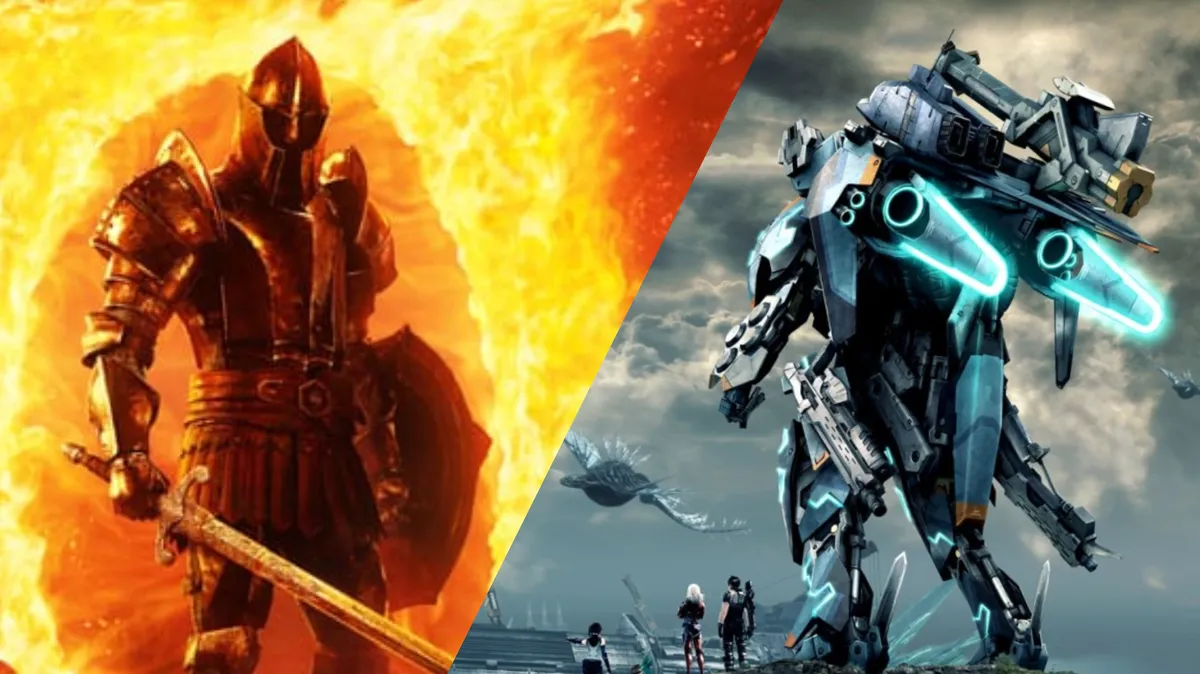
I've combined these two very disparate games for one reason: they are both remasters, but of games that came out over a decade ago that were unique even then, and whose uniqueness has never quite been replicated.
Oblivion remains one of the best open-world RPGs of all time, so different yet so vital to the development of Skyrim, with archaic class systems and character building and a beautiful fantasy world that give it such a unique look against most modern RPGs. Xenoblade Chronicles X, abandoned to the Wii U, is the most experimental of its series, focusing more on open-world exploration, side quests and sci-fi elements (including actual mecha gameplay!) in contrast to the far more narratively-focused Xenoblade Chronicles and its successors.
These remakes add in and adjust to modern rpg styles in the best way: besides graphical improvements that maintain its stunning world while toning down the blinding bloom of the original, Oblivion's remaster adjusts its character building to be more intuitive and understandable without losing the unique systems and gameplay, creating a bridge between the accessibility of games like Skyrim and the deeply involved systems and world-centred, as opposed to player-centred, gameplay of 2000s RPGs. Xenoblade X's remaster brings its graphical style more in line with the rest of the series, while enhancing its character models and particle effects to fit the fantasy the original was attempting to produce, and gameplay-wise it streamlines many features and updates much for quality of life, adding autosave, save slots, respec systems, shared experience, and a time change system which is necessary for certain quests, as well as adding a new ending section tying back to the main series more clearly and answering some of the questions its original ending created; though in typical Xenoblade style, there are always still questions to be answered.
Nonetheless, both these games are worth your time over most remasters and remakes because where many go out of their way to redo plots or change their original games, these two packages preserve the originals, but in a format that better translates to player enjoyment without losing any of what made the originals so unique, and their updates and freshness have made games I enjoyed so long ago even more enjoyable in 2025. Give the greats a chance, just with less of the annoyance of the originals.
Wanderstop
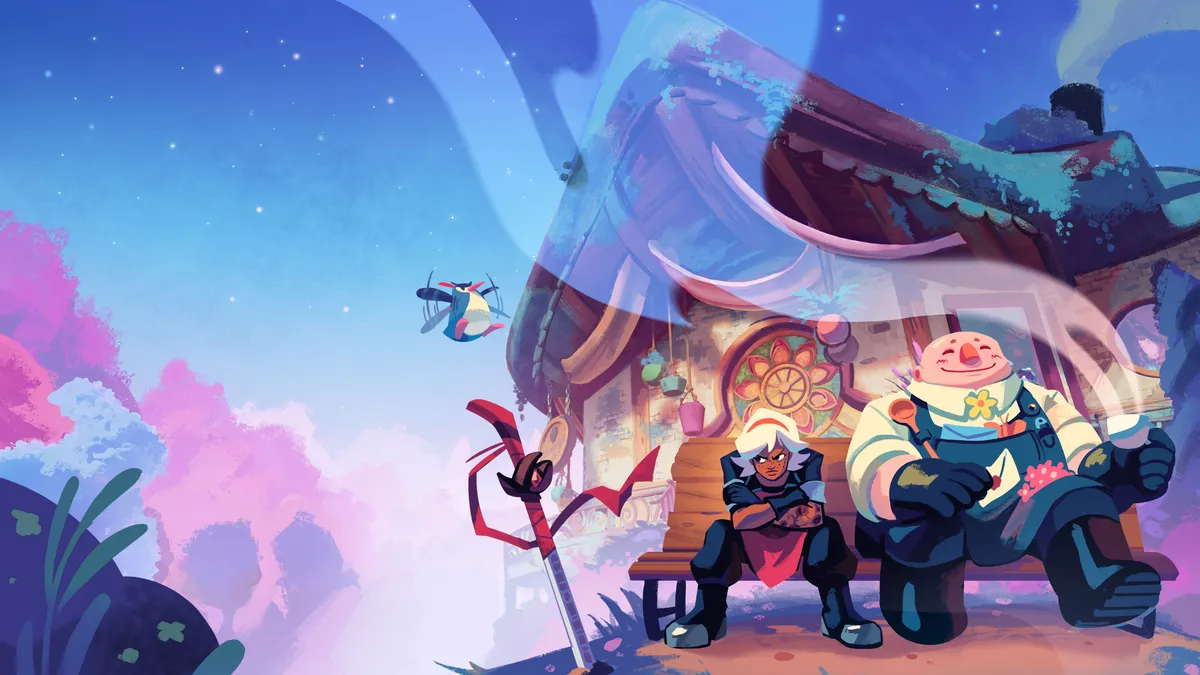
When deciding how to write about some of the games on this list, I did my best to be brief and not too personal with the descriptions. After all, we're trying to get you to play these games, but it doesn't help much if I spend three paragraphs talking about how it made me feel, and not what the game even is, then I've probably failed. That being said, games like Wanderstop are unique in that my reasons for recommending them are so intensely personal.
I wrote a long-winded, kinda messy review about the game which you should read (I think it's good!) but to summarise, I had to take time off work due to complete burnout and this game about overcoming burnout released exactly two days later. I was already looking forward to it, given its creative director Davey Wreden, best known for the hilarious The Stanley Parable and the arguably life-altering The Beginner's Guide. It felt like fate.
I could, of course, go into detail about how charming this game is, with the lovable cast of characters, the pleasant artstyle, the infectious soundtrack by Minecraft artist C418, the minimalist tea-brewing gameplay loop that lends itself to the kind of monotony it encourages you to embrace… but ultimately, those aren't the reason this became one of my favourite games ever. My connection to this game is borderline worrying. It led me through a dark tunnel, and changed the way I interact with the passage of time and my ability to prioritise tasks. I have multiple hours logged in this thing that are surely dedicated to me sitting the protagonist down at a bench and letting the ambience wash over me. It was a sincere commitment requiring genuine willpower that drove me to finish it. I wanted to rest in its embrace as long as possible. But I knew, at some point, I had to let it go.
If nothing else, I hope that's recommendation enough. Wanderstop must be doing something right to have affected me to such a profound extent. Maybe it will be the same for you! Or, at the very least, you'll have a fun time. Maybe that's enough.